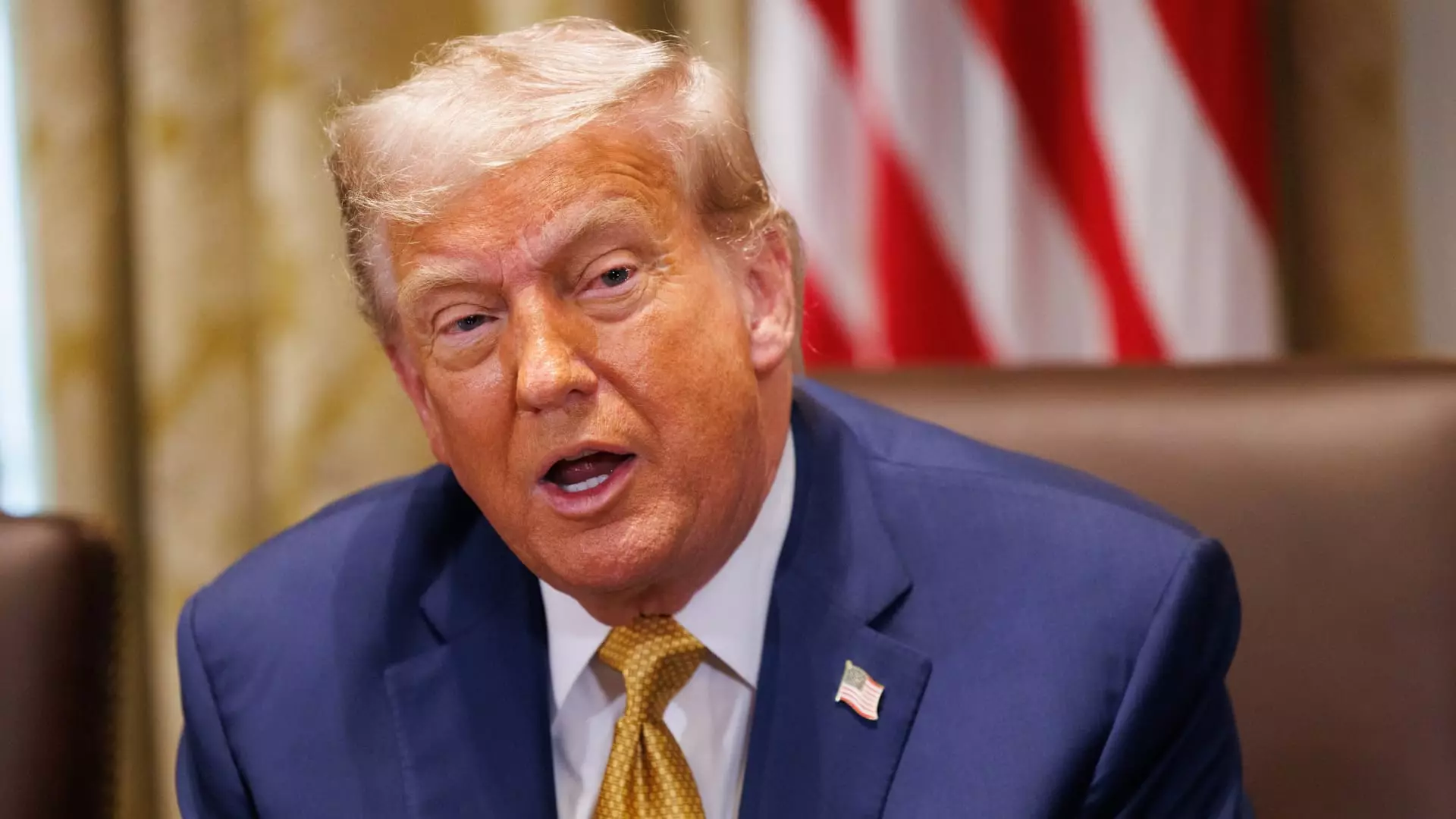At the heart of Donald Trump’s approach to pharmaceuticals lies an alluring yet fundamentally flawed premise: using tariffs as a tool to bolster national security and boost domestic manufacturing. While this rhetoric resonates with a populist desire to reclaim America’s industrial strength, it dangerously oversimplifies the complex interplay between global supply chains, innovation, and economic stability. By framing imported drugs as a threat to national security, the administration risks conflating economic dependencies with genuine safety concerns, neglecting the reality that many vital medicines rely on international collaboration and manufacturing expertise. Imposing tariffs of up to 200% could, paradoxically, jeopardize the very security they aim to enhance, by destabilizing the supply chain and inflating costs for American consumers and hospitals. This misguided tactic reflects a shortsighted nationalism that ignores how interconnected global markets truly are, and fails to recognize that true national security is rooted in economic resilience, not protectionism.
The Economic Toll: Who Truly Loses from Tariffs?
Trump’s insistence on heavy tariffs also exposes a fundamental misunderstanding of economic dynamics. The pharmaceutical industry is a high-stakes field characterized by innovation, capital investments, and complex international supply chains. Imposing punitive tariffs might seem like a clever negotiating ploy, but the reality is that pharmaceutical companies would inevitably pass these costs onto consumers and governments, driving up drug prices and placing more financial burden on Americans. Moreover, fear-mongering about “bringing manufacturing back” neglects the fact that most advanced pharmaceutical manufacturing requires highly specialized infrastructure and expertise—things that cannot be simply relocated overnight or after a tariff announcement. The short-term benefit of perceived job creation or patriotic production efforts is vastly overshadowed by long-term consequences: higher costs, reduced investment in R&D, and a potential decline in the United States’ competitive edge in biopharmaceutical innovation.
The Political Risks: Pandering and the Economy’s Fragility
Trump’s tariff threats seem driven less by strategic economic planning and more by electoral posturing and political gains. The unpredictable nature of these threats reinforces a pattern of reactive policymaking that unsettles markets and erodes trust among industry stakeholders. The pharmaceutical sector, vital for health and economic growth, faces instability from these threats that appear increasingly rhetorical than actionable. Politicians promising tough tariffs often underestimate or ignore the broader implications—such as investment flight, reduced competitiveness, and increased costs for the American healthcare system. Such policies risk alienating key allies and tarnishing the U.S.’s reputation as a global leader in innovation. For a center-right ideology that champions free enterprise and prudent regulation, Trump’s approach reveals a reckless disregard for the economic fundamentals that underpin American prosperity and technological leadership.
Equilibrium Between Free Markets and Strategic Interventions
A healthier perspective on U.S. pharmaceutical policy recognizes the importance of balancing free-market principles with targeted interventions. While safeguarding American manufacturing capacity is important, blanket tariffs that threaten to escalate costs and disrupt innovation are counterproductive. Instead, fostering a conducive environment for domestic investment—through tax incentives, research funding, and streamlined regulations—can effectively achieve the goal of revitalization without the unnecessary economic collateral damage. A center-right approach would advocate for pragmatic, market-driven solutions rather than punitive trade policies disguised as security measures. It’s crucial to understand that America’s strength lies not in isolationist measures but in strategic engagement with the global economy—ensuring secure supply chains, encouraging innovation, and maintaining competitive costs for consumers.
The Broader Context: Why Fake ‘Protection’ Is a False Promise
Ultimately, Trump’s tariff threats reveal a fundamental misunderstanding of what drives industrial growth — innovation, investment, and international partnerships. Framing tariffs as a means to ‘win’ or ‘protect’ the industry is a fallacy that ignores the nuanced realities of modern manufacturing and healthcare. The pharmaceutical industry’s future depends not on defensive tariffs but on policies that promote research, protect intellectual property rights, and open new opportunities for collaboration. As a center-right observer, I see this as a chance to advocate for policies that are rooted in economic realism, fostering growth through constructive regulation rather than populist protectionism. America’s leadership in this sector hinges on smart, balanced policies—ones that value open markets, safeguard technological advancements, and recognize that true security is achieved through economic strength and innovation, not economic retaliation.
In a globalized world, resorting to punitive tariffs on vital industries is not only shortsighted but dangerous. The nation’s future depends on policies rooted in wisdom, not impulsiveness—policies that strengthen America’s industrial backbone without imperiling the very ingenuity that makes it exceptional.

